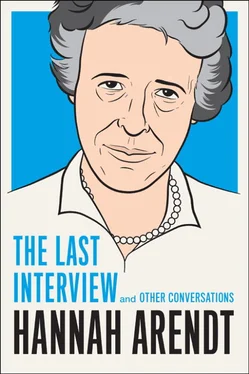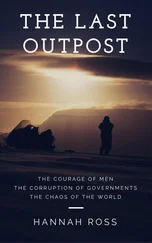Reinhard Heydrich, a high-ranking Nazi official and one of the principal architects of the Final Solution. He was attacked in Prague on May 27, 1942, by a team of Czech and Slovak soldiers, sent by the Czechoslovak government in exile, and died from his injuries a week later.
Robert Ley, Nazi politician and head of the German Labor Front from 1933 to 1945. He committed suicide in 1945, while awaiting trial for war crimes in Nuremberg.
Moshe Landau, the presiding judge in the Eichmann trial, himself a refugee from Nazi Germany.
Captain Avner W. Less, a young Israeli police official who interrogated Eichmann for 275 hours in the pretrial interrogations in 1961.
Arendt is referring to Dutch journalist Harry Mulisch’s book on the Eichmann trial, Strafsache 40/61 ( Criminal Case 40/61 ), which she greatly admired.
Robert H. Jackson, the chief U.S. prosecutor at the Nuremberg Trials.
Hjalmar Schacht, an economist, banker, and politician who served in Hitler’s government as president of the Reichsbank and minister of economics; and Franz von Papen, a politician who served as vice-chancellor of Germany under Hitler in 1933 and 1934.
Karl Jaspers, Questions of German Guilt , 2nd ed. (New York: Fordham University Press, 2000), 66.
Fest is referring here to Albert Forster, the Gauleiter (party leader of a regional branch of the NSDAP) of Danzig–West Prussia from 1935–1945. Forster was directly responsible for the mass murder, resettlement, and forced assimilation of tens of thousands of Jews and nonethnic Germans over the course of his administration.
See Eichmann in Jerusalem (New York: Viking Penguin, 1963), 247.
On Violence was first published by Harcourt Brace Jovanovich in 1970. A few years later, it was included in the collection Crises of the Republic (New York: Harcourt Brace Jovanovich, 1972), where this interview first appeared in English.
German Marxist philosopher and author of the books Natural Law and Human Dignity and The Principle of Hope. Bloch’s ideas were influential for the student protest movements of the 1960s.
Walter Ulbricht, first secretary of the Socialist Unity Party and de facto leader of East Germany from 1950 to 1971.
At the time of this interview, the Oder-Neisse Line was the border between the German Democratic Republic and Poland. It was established by the Potsdam Agreement of 1945 between the United States, the United Kingdom, and the Soviet Union, which resulted in Poland encompassing territories that, before the war, had been part of Germany. West German politicians refused to recognize the Oder-Neisse Line until 1970, though East Germany had confirmed it in 1950.
Arendt is referring here to the increasingly autocratic policies of Shah Mohammed Reza Pahlavi. When the shah traveled to Germany on an official visit in 1967, German students demonstrated against what they saw as their government’s complicity with an oppressive regime.
The Notstandsgesetze —Emergency Laws—were passed in West Germany in May 1968. They allowed the government to curtail some constitutional rights during a crisis.
Konrad Adenauer, chancellor of West Germany from 1949 to 1963.
On Revolution (New York: Viking Press, 1963).
The reference is to the May 15, 1972, assassination attempt on Alabama Governor George Wallace, who was at the time one of the front-runners in the Democratic presidential primary race.
Arendt is alluding to the testimony of John D. Ehrlichman, President Nixon’s adviser on domestic affairs, before the Senate Watergate Committee.
The reference is to the burglary of psychiatrist Dr. Lewis Fielding’s office by a covert White House special investigations unit, referred to as “the plumbers,” who hoped to find material to discredit Daniel Ellsberg, the former military analyst who had leaked the Pentagon Papers.
“Lying in Politics: Reflections on the Pentagon Papers,” New York Review of Books , November 18, 1971, 30–39.
Walt Whitman Rostow, who served as special assistant for National Security Affairs to Lyndon Johnson from 1964 to 1968, and General Maxwell D. Taylor, chairman of the Joint Chiefs of Staff under Kennedy from 1962 to 1964 and ambassador to South Vietnam for a year thereafter.
Arendt is referring to the epigraph she chose for “Lying in Politics,” which was the following quote from Robert S. McNamara: “The picture of the world’s greatest superpower killing or seriously injuring a thousand non-combatants a week, while trying to pound a tiny backward nation into submission on an issue whose merits are hotly disputed, is not a pretty one.”
Errera is referring to the concept that Arkansas Senator James Fulbright laid out in his 1966 book The Arrogance of Power , in which he took the U.S. government to task for the justifications it had offered for the Vietnam War.
Hans Morgenthau, an influential scholar of international relations and foreign policy, and author of Politics Among Nations.
The correct quotation from Char is “ Notre héritage n’est précédé d’aucun testament , which is taken from Feuillets d’Hypnos (Paris: Gallimard, 1946). Arendt uses this quotation as the opening words of Between Past and Future: Eight Exercises in Political Thought (New York: Viking, 1968), where she translates it as “Our inheritance was left to us by no testament.”
The Origins of Totalitarianism (New York: Harcourt, Brace & World, 1951), 155.
This should be read against the background of the events of the day: on October 6, 1973, Egypt and Syria had attacked Israel, unleashing the Yom Kippur War.
Georges Friedmann, Fin du peuple juif? (Paris: Gallimard, 1965).
This quotation is taken from Brecht’s notes to the play “The Resistible Rise of Arturo Ui” in Werke: Große kommentierte Berliner und Frankfurter Ausgabe (Berlin: Suhrkamp, 1988), 24:315–19.












